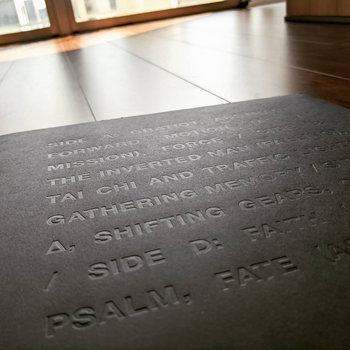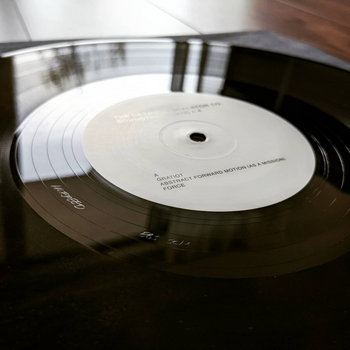







Compact Disc (CD), 2 x Vinyl LP




It’s almost impossible to outline a history of techno without considering the musical history of Detroit: The suburban sounds of originators The Belleville Three (electronic music pioneers Juan Atkins, Kevin Saunderson, and Derrick May), born from their teenage explorations into krautrock and funk; the clubs where the genre picked up speed and intensity; and labels like Transmat and Metroplex and Microworld, which gave the music international reach for an eager fan base across the Atlantic. And then there is the argument that techno is a futurist, science fiction-inspired interpretation of Detroit’s physical decay into a barren expanse in the 1980s; the explosive snaps of the TR-909 were a reclamation of the technology that had abandoned the city after the decline of the auto industry in the decade prior. Techno was a way of redefining the mythos of the city into a space for man-machine synthesis, both theoretically and literally.
It was into this post-industrial landscape that Neil Ollivierra entered the city’s underground music community. He got involved with local clubs, including the legendary Music Institute, and similarly found strange serenity in technology, spending his nights designing databases for Transmat. But rather than explore the escapist futurism of his Belleville mentors, Ollivierra took inspiration from the lived experience of modern Detroit. On his 1996 release as Detroit Escalator Company, Soundtrack [313], he explored that urban emptiness via hushed synth pads, expansive piano, and a ricochet of carefully programmed drum machine rhythms. Newly reissued for the first time since its release via the Swiss label Mental Groove Records, the album is pioneering in its combination of techno, sound collage, and ambient, connecting memory, music, and mindfulness at their intersections.
“Gratiot” opens the album with soft chords and wooden percussion, far removed from contemporary expectations of techno, closer to the spa-like New Age soundscapes than the thumping beats that were dominating European dancefloors by the mid-’90s. That tranquil side of synthesis, from the low hum of “Force” to the meditative and murky rhythms of “Tai Chi and Traffic Lights,” reflected Ollivierra’s interests at the time, which ranged from obscure ambient compilations to his bike rides around Detroit on “[n]ights so quiet and desolate that you could hear the traffic lights click when they changed color,” he later said.
But Soundtrack is also an indirect homage to his techno origins. “Abstract Forward Movement” takes Atkins’s love of Kraftwerk and expands on it with chiming locomotive synths, while “The Inverted Man (Falling)” evokes a Drexciyan feeling of weightlessness with its warbling, almost aqueous arpeggios. But the album is perhaps most prescient when it samples Ollivierra’s literal environment, subtly inserting urban politics and the sounds of everyday life into his music: The diegetic sounds of dance music playing in the street on “Shifting Gears”; the strangely calming conversation between two people about Detroit directions on “Gathering Memory,” which meanders until the very end: The ideal road to get to the desired destination is closed because of police presence. It feels like an obvious forefather to similarly charged vocal sampling from artists like Space Afrika and Jamie XX.
Soundtracks [313] is a living memory of a city with a cultural export that outpaced its physical one. Its new reissue, which includes six bonus tracks, makes the argument that Ollivierra is as central to the development of techno beyond the boundaries of the dancefloor as his more renowned counterparts. In combining sweeping synths with pummeling rhythms, Ollivierra found tranquility in a city he helped put on the electronic music map.







